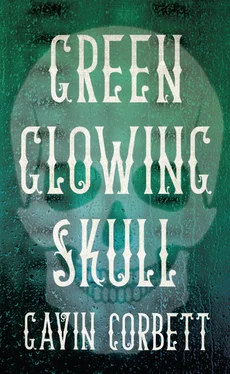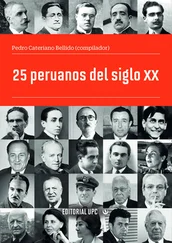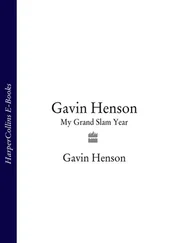Silence again.
‘And that makes you happy?’
‘It feels good to put something out there. It makes me feel not so sad about not having added to the world’s biomass.’
Silence. Bafflement.
‘Come again?’ he said.
‘If you have to ask that question —’
‘Am I in these stories?’
‘Pfff.’)
***
Okay, he said. Okay.
O and — indeed — K, he said.
He would refocus. What had Ayn Rand said? She had said: Grab the world with both hands, take matters into … (Account?) Do not rely on luck. Break out on your own.
Perhaps he did not need the others — this was an idea. He once saw a man selling film scripts from a trestle table in a cobbled street in SoHo. Perhaps he could sell lyric sheets for old Irish songs, in front of the Time Warner complex. There, he might attract the interest of someone from the modern entertainment industry.
He went as far as buying the briefcase in which he would carry his songs — a battered cardboard briefcase, a century old, the type that fell apart in the rain. He gave it a good kick to knock the dirt off, and started to cough, and then to cry, imagining that he was choking on the ashes of pogroms and the dust of indifference. He imagined what it might once have contained — a few tools, of the wrong gauge: metric, useless in the new world. Or something more universally useless, like a magic set.
It fell apart even without the rain. Tapped him on the knees. Abandon me, it said, and abandon ambition. ‘You might as well,’ it said, like a big animate whoopie pie. Damn it, he said, kicking the case again and sending it scraping across the pavement like a hockey puck. He lifted his hand to passers-by in acknowledgement of his violence. He felt keenly alone in the abscess of space that they left around him, and different from them. He experienced a passing, limb-weakening humility with the destitute, as if he were Saint Francis, and New York was his Assisi, and the destitute were his animals. It was in and out of him like a gunshot, for as long as it took a bag lady to tell him he was a ‘dill hole’.
Okay, he said.
He arrived in Morningside Heights dehydrated and exhausted. Outside Denny’s building he noticed a small skip — or dumpster, as they were known in these parts. In the skip was a lot of smashed-up plaster. On closer inspection there appeared to be, in the rubble, pieces of broken pottery and crockery. Even closer study revealed complete items of brassware, including a couple of spear-bearing monkeys, and the head of a cherub, flaking and freshly chipped, with a cork for a neck.
The old man’s living room was clear of most of the clutter it had held previously. All that remained were the books, the chairs and wake table, and a few unobtrusive items on the mantelpiece. Bit sniffed sorrowfully along the skirting board where the reredos figures once stood.
‘I prefer the word dumpster myself,’ said Denny. ‘Skip seems too light for the item that it describes. And to me that item looks like a giant turtle dumped by a giant bird.’
Seated was Clive, as expected, but also Jeremiah, who lived and worked in the building. He had in front of him an electric piano on a stand, set low so that the keys could be comfortably played while he sat. A plate with a large mound of fruit balanced on the arm of the chair. He was so big — not remarkably tall, but broad — that he seemed to be wedged into the upholstery.
‘Rickard, you’ve met Jeremiah from the basement rooms. His brothers have been very kind to me. They have placed my more valuable items in storage in a pantechnicon. They have promised to earn me some money in these flea shops that are “all the rage”. And Jeremiah will be a great help too. A great help to all of us.’
‘You’ll be playing with us, Jeremiah?’ said Rickard.
‘In a manner of speaking,’ said Denny, before the younger man, who in any case was engrossed in his machine, could respond.
Beside Jeremiah, Clive nodded emphatically along, as if he had already been informed of a plan and was convinced again of the wisdom of it.
‘We have some good news anyhow,’ said Denny. ‘Jeremiah, showing a barefaced disregard for ethics, but an admirable dynamism, has been recording our singing. He has sent the recording to a radio station. The radio station has sent it into space. It has travelled in a perfectly straight line. Is that all correct, Jeremiah?’ (Jeremiah, delighting in his fruit, murmured an affirmative.) ‘A lady has heard our singing. And now we’ll be playing our first concert on March the sixth.’
‘Ah,’ said Rickard. ‘Ah,’ he said, ‘this is good news,’ though the news was like bright light to his dry eyes, and he felt dazed, dazzled, a-muddle, and he was not sure, come to it, it being real now, if he wanted any of it any more.
‘Which is why,’ said Denny, ‘we’ve enlisted Jeremiah, who has a terrific ear.’
‘You’ll be able to pick up all the tunes, Jeremiah?’
‘Jeremiah won’t be picking up any tunes,’ said Denny. ‘He’ll have a more localised job on the night and, here’s to be hoped, on many others too.’
Clive nodded with especial fury now. Jeremiah remained a million miles away.
‘You’ll have noticed,’ continued Denny, ‘that I’ve got rid of that awkward upright piano. Jeremiah and I have been shopping for a replacement since. We have acquired a sleek new device. What’s it called, Jeremiah?’
‘It’s called the Reformer,’ said Jeremiah.
‘Is she “booted up”?’
‘It’s on, yes, but just having a bit of a snooze at the minute.’
Jeremiah ran his finger from side to side on the shiny white cladding of the keyboard. Within the cladding the ubiquitous Puffball orb burned upwards until it was all the one intense brightness and its edge was sharp. Quickly it settled down to a gently pulsing ember and the edge became hazy. From inside the machine the juice of it, or a spinning part, made a faint and steady hiss.
Rickard stepped forward to examine the machine. It was barely a keyboard at all; the keys were not objects but markings on the cladding. The corners were rounded; there were no bumps or attachments or holes or dials or switches. It encouraged touching, though he resisted touching it.
Denny took a rectangular box from his wake table, about the size of a big man’s fist and wrist and the same white colour and gloss as the keyboard. The box opened with a click. It contained what resembled a small flat horseshoe with two curled fronds attached to the ends.
‘The machine only works with this device, and this device works by means of laryngeal violation. I place the main part under my tongue. The tendrils unfurl and find their own way to my vocal cords. The device takes all the sound from my voice box and transmits it to the main unit. This is where Jeremiah does his job. He plays not the musical backing to our songs but the vocal parts. That is … my vocal part. He takes the substance of my voice and bends it to the song. His machine then communicates with any amplifier within reasonable distance.’
‘Where will the accompaniment come in?’ said Rickard.
‘There won’t be any. Jeremiah’s job will be to serve my voice. The machine can produce various effects too. It can make me sound like McCormack, or Merli. Or Dame Nelly Melba, if I so desire it.’
‘We will be in effect an a cappella group, then?’
Denny’s face soured.
‘And what about it? We’ve operated as such so far in practice.’
‘In practice, yes, but always on the understanding that when it came to singing a concert we’d be accompanied on piano.’
‘On whose understanding, now? It was never my intention to have musical backing.’
Rickard knew this to be untrue. He looked for a doubting expression in Clive, but Clive showed only the most earnest and patient attention to Denny.
Читать дальше
Конец ознакомительного отрывка
Купить книгу












